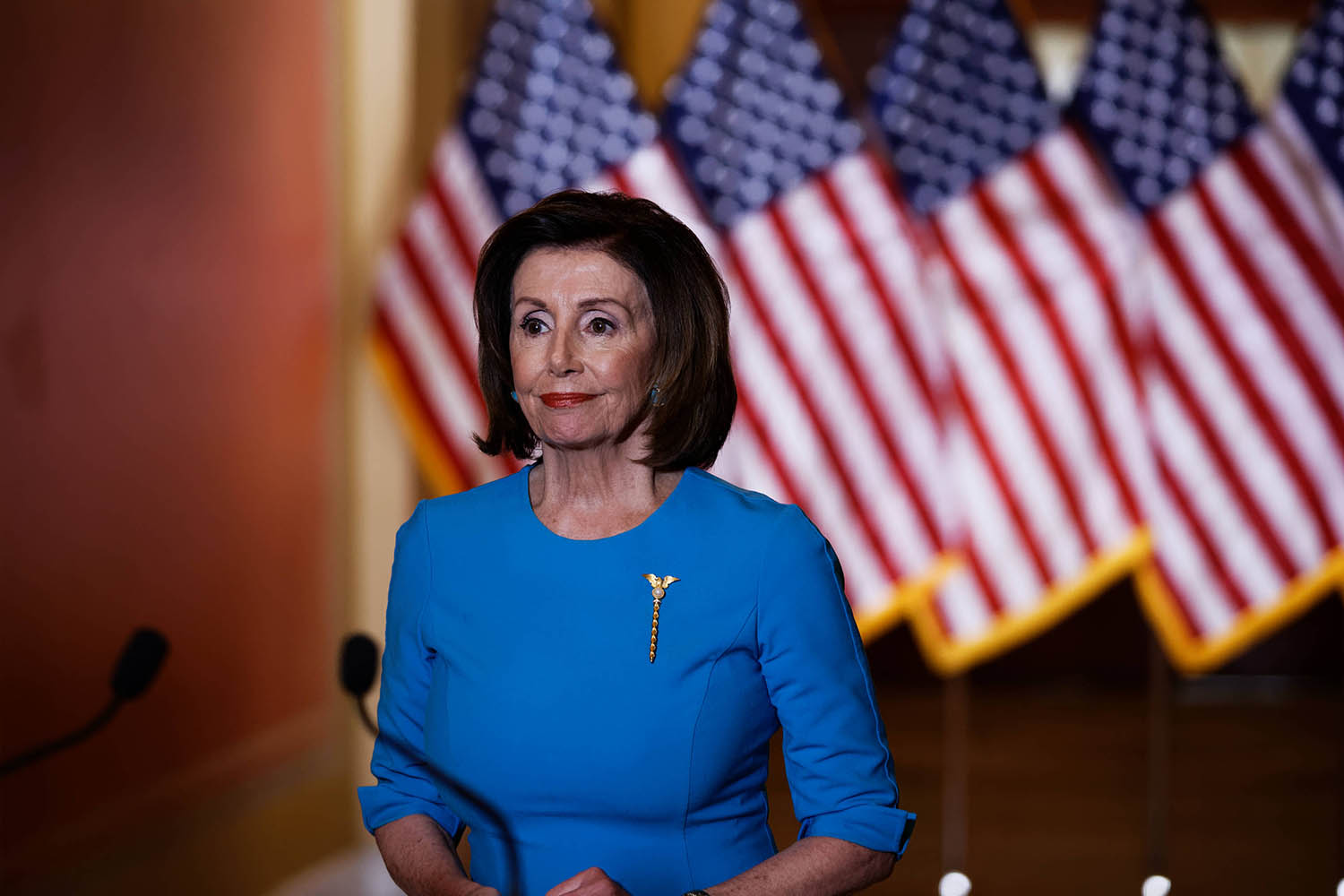
When Obama took office, in the midst of the worst economic meltdown since the Great Depression, Democrats controlled the House and Senate as well. But they needed 60 votes to break a Republican filibuster in the Senate, and there were only 57 Democratic senators, which meant Obama had to recruit three Republicans to vote for a stimulus bill.
In just his second week in office, his blunt-spoken chief of staff, Rahm Emanuel, had to pose a blunt-spoken question to Republican Senator Arlen Specter of Pennsylvania: Whaddya want?
Specter’s ask was simple, and by Washington horse-trading standards, noble. He wanted $10 billion for the National Institutes of Health. Then he would vote for the Obama stimulus.
“Are you f–ing kidding me?” Emanuel exploded.
Emanuel assumed $10 billion-with-a-b was just Specter’s initial bid, a shock-tactic negotiating ploy. But Specter gruffly said no, that was his final offer, take it or leave it.
“What the f– does a vote cost around here?” Emanuel screamed.
In Specter’s case, it cost precisely $10 billion. He understood that Obama needed his vote to fix the economy, so he held all the leverage. But today’s congressional Democrats don’t seem to understand that at all.
Right now, after initially downplaying the threat of coronavirus, then bungling the response to the pandemic, then watching the swift demise of the bull market he had hailed as proof of his leadership, Trump absolutely needs congressional action to limit the public health disaster and mitigate the economic damage on his watch.
House Democrats can pass whatever bill they want, and if Republicans aren’t willing to go along with it, another lesson of American crisis politics is that it’s Trump who will suffer the consequences.
Some Democrats have fretted that they might suffer politically if they don’t help Trump clean up the mess, but the opposite happened in 2009. The Republican minority in the House unanimously refused to support Obama’s stimulus, even though the crisis had exploded on his Republican predecessor’s watch, and the very next year those same Republicans took back the majority in the House. In fact, the only Republican in Congress who paid a political price was Specter, who had to switch to the Democratic Party after a GOP backlash over his vote for Obama’s stimulus, and ended up losing his seat anyway.
In 2020, Democrats are not acting like a party with that kind of leverage.
Instead, Pelosi frantically hashed out a compromise on Friday over 13 phone calls with Treasury Secretary Steven Mnuchin, who accepted Democratic proposals to expand free COVID-19 testing and unemployment benefits, along with a modest boost in food aid for the poor, but made it clear that permanent legislation mandating universal sick leave was a “non-starter” for Republicans.
Trump ratcheted up the pressure by complaining publicly that Democrats weren’t “giving enough” in the negotiations, while Senate Majority Leader Mitch McConnell dismissed the House proposals as “an ideological wish list.” Ultimately, Democrats accepted a temporary mandate that only applies to companies smaller than 500 employees, and allows companies smaller than 50 employees to seek exemptions.
“Democrats preferred to have something rather than nothing,” a Democratic source explained to CNN’s Jake Tapper. “That was the choice we faced.”
That was not the choice Democrats faced. Unlike the Republicans in 2009, who only had a filibuster-proof minority in the Senate, they also have a majority in the House, where they could have attached anything they wanted to the must-pass coronavirus testing and dared Republicans to say no.
If the president was unwilling to approve measures to help contain a pandemic and limit the economic fallout because he didn’t want sick workers to be guaranteed paid leave, he could have explained that to the public. He’s the president, the head of state, the “I alone can fix it” guy. He’s the one who will be judged by the outcome of the crisis that he initially insisted was not a crisis, then declared was under control thanks to his leadership.
After all, Obama was held responsible for an economic crisis that erupted on George W. Bush’s watch, and the party that fought his efforts to fix the crisis ended up taking back the House, the Senate and eventually the White House.
The public doesn’t follow the details of legislation on Capitol Hill, but it blames presidents for bad outcomes. The public also tends to blame presidents for partisan paralysis, while giving them credit for bipartisan cooperation; that’s why McConnell understood he could make Obama look partisan by fighting him, even though Obama’s stimulus was stuffed with tax cuts and other Republican priorities.
It is true that Democrats would be accused of trying to exploit the crisis if they tried to load up a coronavirus bill with unrelated priorities such as, say, a Green New Deal to fight the climate crisis—although it’s worth noting that Trump and McConnell have already accused them of trying to exploit the crisis just for trying to mandate sick leave during a pandemic. But they still have the leverage to shape legislation just about any way they want if they’re willing to take the heat.
In 2009, Republican Senator Olympia Snowe of Maine used her leverage to demand that the Obama stimulus include a technical fix to the Alternative Minimum Tax that added $70 billion to the price tag while providing virtually no economic stimulus. Republican Senator Susan Collins of Maine insisted on stripping a school construction initiative out of Obama’s stimulus—along with, ironically, an $870 million line item for pandemic preparedness. The 57 Democrats in the Senate also had the power to extract concessions for their votes; Obama had wanted a stimulus without congressional earmarks, but Dick Durbin of Illinois managed to include one for a $1 billion carbon-capture plant that never ended up getting built.
Setting aside the question of whether Democrats should try to exploit the leverage to advance long-term policy priorities, they can absolutely exploit their leverage to address the short-term crisis. If they think universal sick leave will help, they should demand universal sick leave. Meanwhile, with Louisiana and Georgia already postponing primaries over the virus, why shouldn’t Democrats attach provisions guaranteeing that Americans will be able to vote by mail in November? Jeff Hauser, director of the left-leaning Revolving Door Project, doesn’t understand why the Democrats didn’t insist on provisions restoring congressional oversight powers to help them ride herd on the administration’s response to the virus, ensuring that Trump and his aides can no longer defy subpoenas for documents and witnesses.
Again, if Trump thinks it’s so important to prevent Americans from voting by mail and preventing Congress from overseeing his administration that he would block measures to accelerate the pandemic testing that his own team has botched, he can try to convince the public.
“House Democrats don’t have some leverage,” Hauser says. “They have complete leverage.”
By giving Trump the emergency measures that he needs most without insisting on the worker protections that Democrats wanted most, Pelosi has sacrificed some of that leverage. She has also helped the president look like a bipartisan consensus-builder, while essentially confirming the GOP talking point that Democrats have a responsibility to meet Trump’s demands in order to avoid a partisan stalemate. In 2009, Republicans simply ignored all the pundits warning that they would pay a huge political price for refusing to help the first black president fix an economic mess he had inherited—and the pundits turned out to be wrong.
Pelosi and other Democratic leaders argue that it’s their duty to help Trump save lives and jobs in 2020, even though Republicans didn’t help Obama in 2009, even though Trump routinely calls them traitors, even though an economic downturn could doom his reelection. They’re pro-government people; they’re not inclined to stand in the way of government action during a crisis.
When the Great Recession was just getting started in January 2008, Pelosi negotiated a quick bipartisan stimulus bill with Bush’s Treasury Secretary, Hank Paulson, and within months Americans were receiving $1000 checks from the federal government. It’s an honorable approach, even though it also probably reduces Pelosi’s leverage. It’s hard to win a game of chicken when the other driver knows you’re committed to avoiding a crash.
Once Trump signs this emergency response bill, he’ll start clamoring for a much larger economic stimulus bill loaded with tax cuts for airlines, cruise lines, his own hospitality industry and other Republican-friendly businesses, along with payroll tax cuts that can help get him reelected. And Democrats will find that many of the same Republicans who mocked the idea of using taxpayer dollars to stimulate the private economy as big government when Obama was in the White House—even though they had supported that bipartisan stimulus bill under Bush—will rediscover the attraction of Keynesian economics when it suits their party’s interests.
Democrats will have to decide whether to meet Trump in the middle, or whether to risk the obstructionist label by holding out for what they want in a time of economic pain. They will also have to decide exactly what it is they want. Some of Obama’s top economists have publicly called for Congress to send checks to American citizens, which would help the economy and also Trump’s reelection prospects.
Again, that’s honorable and responsible, especially since Trump is sure to denounce the Democrats as obstructionists no matter what happens, but it’s not clear it squares with Democratic rhetoric about the danger of Trump’s reelection, especially if they don’t get anything in exchange for helping to rescue the sinking Trump economy.
In any case, Trump won’t be able to pass a stimulus bill without them. At a minimum, one thing they can demand for their cooperation is legislative assurance that economic stimulus can no longer be something that only happens routinely under Republican presidents. They should insist on more robust “automatic stabilizers” so that any time the economy craters, no matter who’s in the White House, Washington will automatically spend far more on food stamps, unemployment insurance and other aid to vulnerable families, and perhaps automatically roll back payroll taxes and other economic burdens. That way, members of Congress will no longer have the power to take the economy hostage during crises.
For now, though, Democrats absolutely have that power. They need to choose their ransom wisely.
Source: politico.com
See more here: news365.stream





